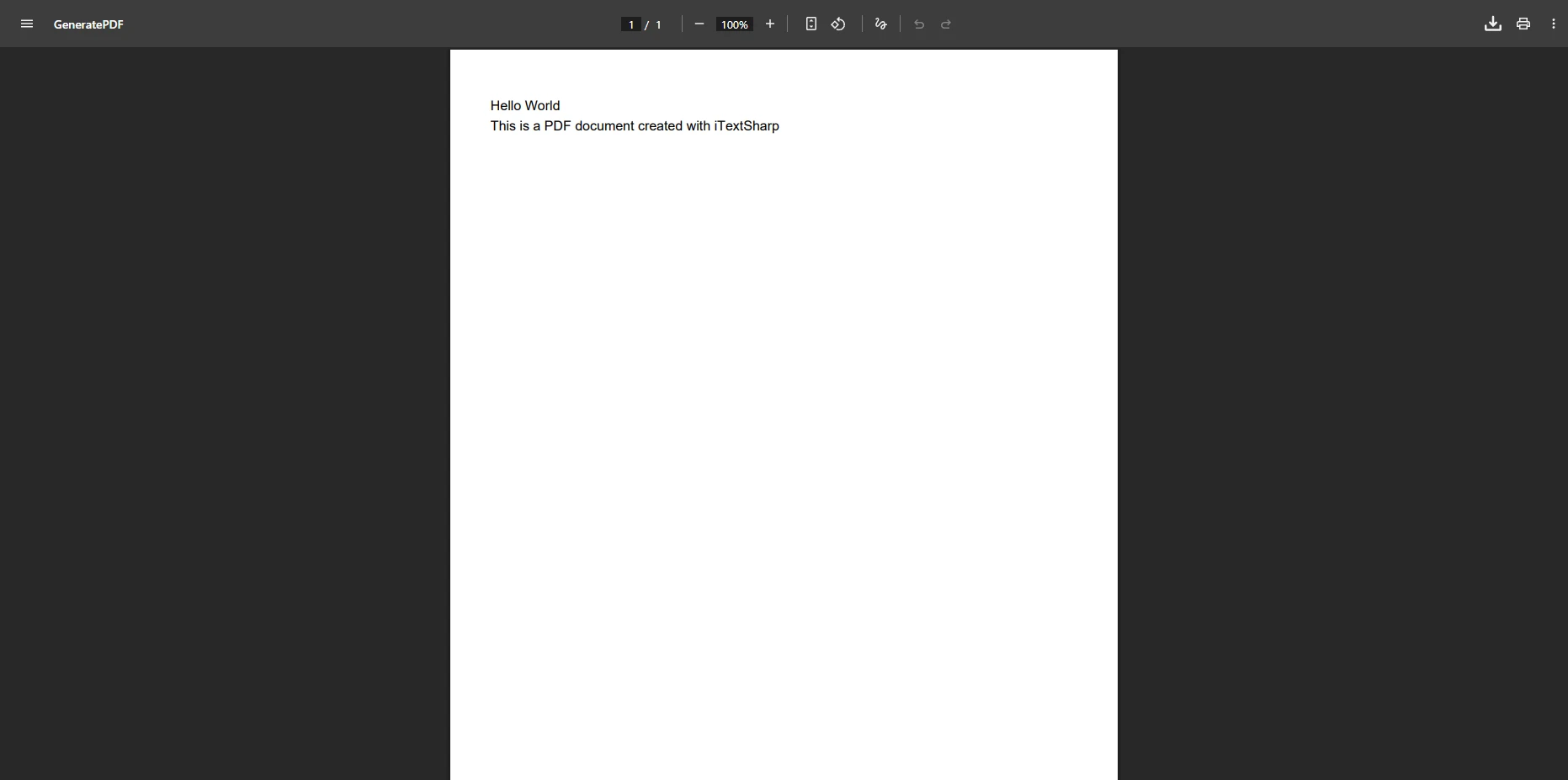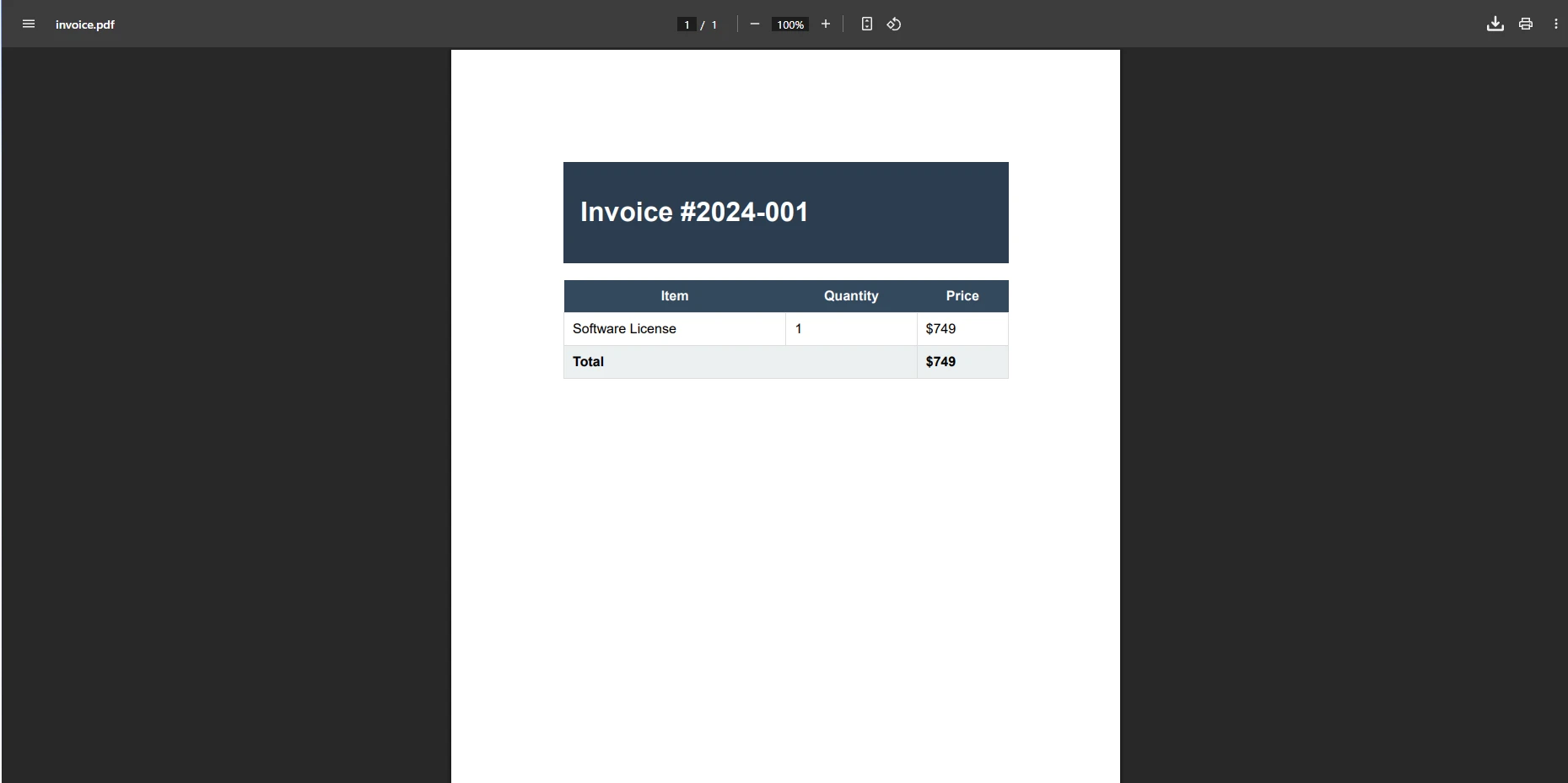Telerik HTML to PDF Generator vs IronPDF
Generating PDF documents programmatically can be complex due to their complexity, especially when including images, tables, text, formatting, and other features.
The main challenge is to figure out how to convert a plain text document into a PDF format. Numerous methods can be used, but choosing one that will maintain the formatting of the original document is essential.
In this tutorial, I'll compare Progress Software Corporation's Telerik PdfProcessing library with Iron Software's IronPDF in how well both can generate PDF documents.
How to Convert HTML to PDF in Telerik
- Install C# library to convert HTML to PDF
- Utilize
Importmethod to load existing HTML file in C# - Convert HTML to PDF with
Exportmethod - Export generated PDF document to desired location
- Perform steps 3 & 4 with a single line in C#
Telerik PdfProcessing
Telerik PdfProcessing Documentation, part of Progress's portfolio of document processing applications, allows you to create PDFs and export them without writing any code. It has features such as text blocks, images, forms, tables, import, and export. In addition, the library offers features that are perfect for flow-like editing. The PdfProcessing app is available for web, desktop, and mobile platforms.
IronPDF .NET PDF library
IronPDF is a .NET PDF library that can generate PDFs without requiring Adobe Acrobat or other third-party software. The library can create PDFs from scratch or export existing .NET components (like ASP.NET official site web pages, WPF user interfaces, etc.) into PDF files.
Installation
In this section, I'll cover how we can install IronPDF and Telerik Document Processing libraries.
Installation of Telerik Document Processing Libraries
To create a PDF document from HTML using the Telerik Document Processing suite, we have to install three libraries:
- Telerik.Documents.Core.Trial
- Telerik.Documents.Flow.FormatProviders.Doc.Trial
- Telerik.Documents.Flow.FormatProviders.Pdf.Trial
- Telerik.Documents.Flow.Trial
You can install these libraries using the NuGet Package Manager.
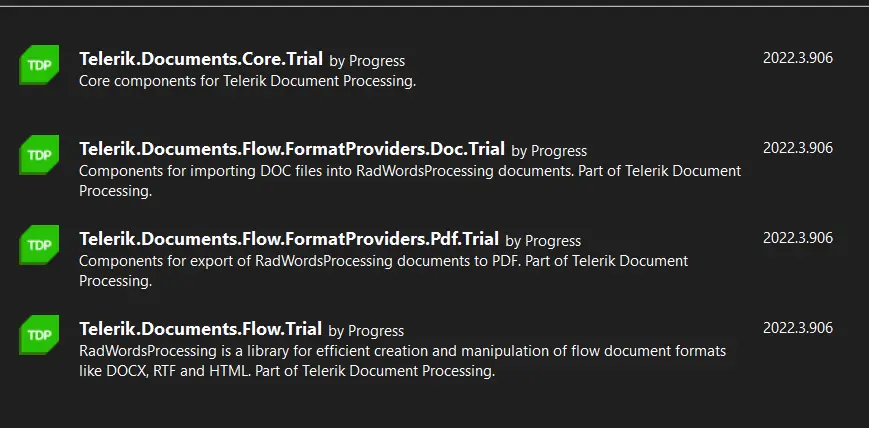
Telerik and Kendo UI Libraries
Installation of IronPDF C#.NET PDF Library
You can install IronPDF using three ways:
- Install with NuGet Package Manager Console
- Install with NuGet Visual Studio GUI
- Downloadthe IronPDF DLL file for manual installation
For installation with the Package Manager Console, you'll need to write the following command in the console.
Install-Package IronPdf
This command will install the latest IronPDF library version in the project. Of course, you can always check the newest version of IronPDF on theIronPDF's NuGet page.
Generate PDFs using Telerik
Telerik supports converting HTML to PDF using the RadFlowDocument library addon. It can convert an HTML document containing an HTML string to a PDF document.
You can use the following code for converting HTML to PDF using Telerik.
using Telerik.Windows.Documents.Flow.FormatProviders.Html;
using Telerik.Windows.Documents.Flow.Model;
// Create an HTML format provider for importing HTML files.
HtmlFormatProvider htmlProvider = new Telerik.Windows.Documents.Flow.FormatProviders.Html.HtmlFormatProvider();
// Create a document instance from the content of an HTML file.
RadFlowDocument document = htmlProvider.Import(File.ReadAllText(@"C:\HTML Website\website\index.html"));
// Create a PDF format provider for exporting the document.
Telerik.Windows.Documents.Flow.FormatProviders.Pdf.PdfFormatProvider pdfProvider = new Telerik.Windows.Documents.Flow.FormatProviders.Pdf.PdfFormatProvider();
// Export the document to a byte array.
byte[] pdfBytes = pdfProvider.Export(document);
// Save the PDF byte array to a file.
File.WriteAllBytes(@"C:/test.pdf", pdfBytes);using Telerik.Windows.Documents.Flow.FormatProviders.Html;
using Telerik.Windows.Documents.Flow.Model;
// Create an HTML format provider for importing HTML files.
HtmlFormatProvider htmlProvider = new Telerik.Windows.Documents.Flow.FormatProviders.Html.HtmlFormatProvider();
// Create a document instance from the content of an HTML file.
RadFlowDocument document = htmlProvider.Import(File.ReadAllText(@"C:\HTML Website\website\index.html"));
// Create a PDF format provider for exporting the document.
Telerik.Windows.Documents.Flow.FormatProviders.Pdf.PdfFormatProvider pdfProvider = new Telerik.Windows.Documents.Flow.FormatProviders.Pdf.PdfFormatProvider();
// Export the document to a byte array.
byte[] pdfBytes = pdfProvider.Export(document);
// Save the PDF byte array to a file.
File.WriteAllBytes(@"C:/test.pdf", pdfBytes);The above code is somewhat complex. You'll first need to create an HtmlFormatProvider and a RadFlowDocument. Import the HTML file using the Import function of the HtmlFormatProvider, and use the returned RadFlowDocument object to produce a PdfFormatProvider. Finally, use the WriteAllBytes method on the PdfFormatProvider to export the PDF file to a specific location.
The output generated by Telerik is not good. Telerik didn't retain the UI of the HTML document or load any of the images.
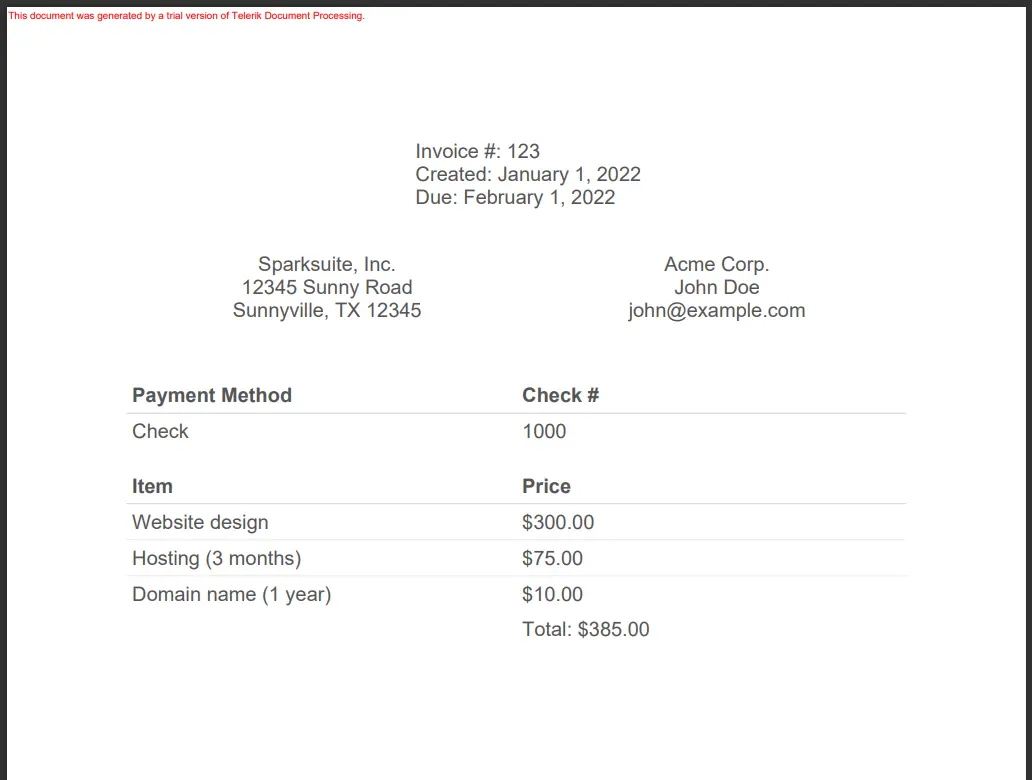
Telerik Output
Generate PDF using IronPDF
IronPDF can generate PDF using HTML files, HTML strings, and URLs.
HTML to PDF
Use the following code to create a PDF document using an HTML file.
using IronPdf;
// Create an instance of ChromePdfRenderer
var IronRenderer = new ChromePdfRenderer();
// Set the renderer's options to fit to the specified paper mode.
IronRenderer.RenderingOptions.FitToPaperMode = IronPdf.Engines.Chrome.FitToPaperModes.FixedPixelWidth;
// Render the HTML file as a PDF document.
var pdfFromHtmlFile = IronRenderer.RenderHtmlFileAsPdf(@"C:\HTML Website\website\index.html");
// Save the rendered PDF document to a file.
pdfFromHtmlFile.SaveAs(@"C:/IronPDF Test.pdf");using IronPdf;
// Create an instance of ChromePdfRenderer
var IronRenderer = new ChromePdfRenderer();
// Set the renderer's options to fit to the specified paper mode.
IronRenderer.RenderingOptions.FitToPaperMode = IronPdf.Engines.Chrome.FitToPaperModes.FixedPixelWidth;
// Render the HTML file as a PDF document.
var pdfFromHtmlFile = IronRenderer.RenderHtmlFileAsPdf(@"C:\HTML Website\website\index.html");
// Save the rendered PDF document to a file.
pdfFromHtmlFile.SaveAs(@"C:/IronPDF Test.pdf");The RenderHtmlFileAsPdf method is used to generate a PDF from the HTML file. This function reads all content from the HTML file, loading the related CSS and JavaScript files. The output of the RenderHtmlFileAsPdf method is displayed below.
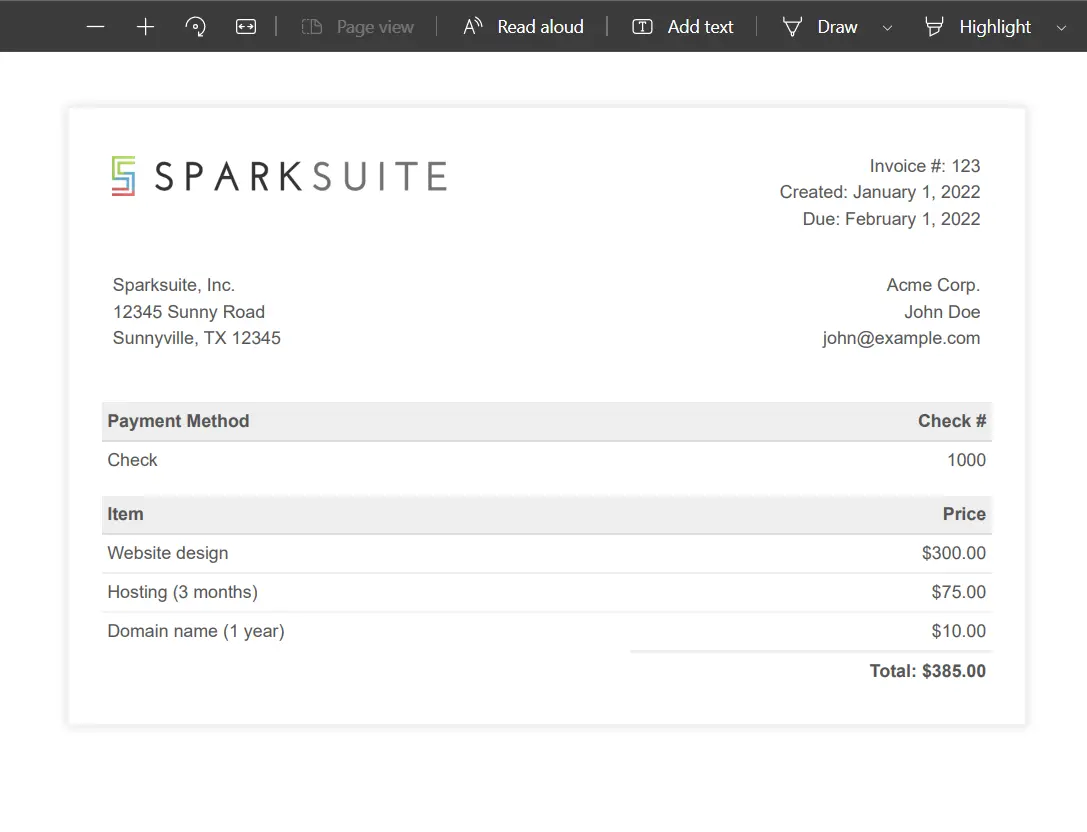
IronPDF HTML to PDF
IronPDF generates PDFs from HTML very beautifully. This result is different and better than the Telerik-generated PDF.
URL to PDF
You can use the following code to generate a PDF from a URL.
using IronPdf.Rendering;
using IronPdf;
// Create an instance of ChromePdfRenderer
ChromePdfRenderer renderer = new ChromePdfRenderer();
// Set the paper size for rendering the PDF.
renderer.RenderingOptions.PaperSize = PdfPaperSize.A2;
// Render the specified URL as a PDF document.
PdfDocument myPdf = renderer.RenderUrlAsPdf("https://dotnet.microsoft.com/en-us/");
// Save the rendered PDF document to a file.
myPdf.SaveAs(@"C:/dotnet.pdf");using IronPdf.Rendering;
using IronPdf;
// Create an instance of ChromePdfRenderer
ChromePdfRenderer renderer = new ChromePdfRenderer();
// Set the paper size for rendering the PDF.
renderer.RenderingOptions.PaperSize = PdfPaperSize.A2;
// Render the specified URL as a PDF document.
PdfDocument myPdf = renderer.RenderUrlAsPdf("https://dotnet.microsoft.com/en-us/");
// Save the rendered PDF document to a file.
myPdf.SaveAs(@"C:/dotnet.pdf");The RenderUrlAsPdf function converts a webpage's URL into a PDF. It waits to load all related files before rendering, producing extraordinary results. It preserves all colors, designs, and UI. You can see the output below.

URL to PDF
You can get more tutorials about IronPDF and see them in action on the IronPDF Tutorial Page.
Comparison
As we've seen the output UI for ASP.NET results of IronPDF and Telerik, we can say that Telerik is not a good option for HTML to PDF conversions, as its rendering quality is not good. You can see the difference between the outputs of IronPDF and Telerik below.
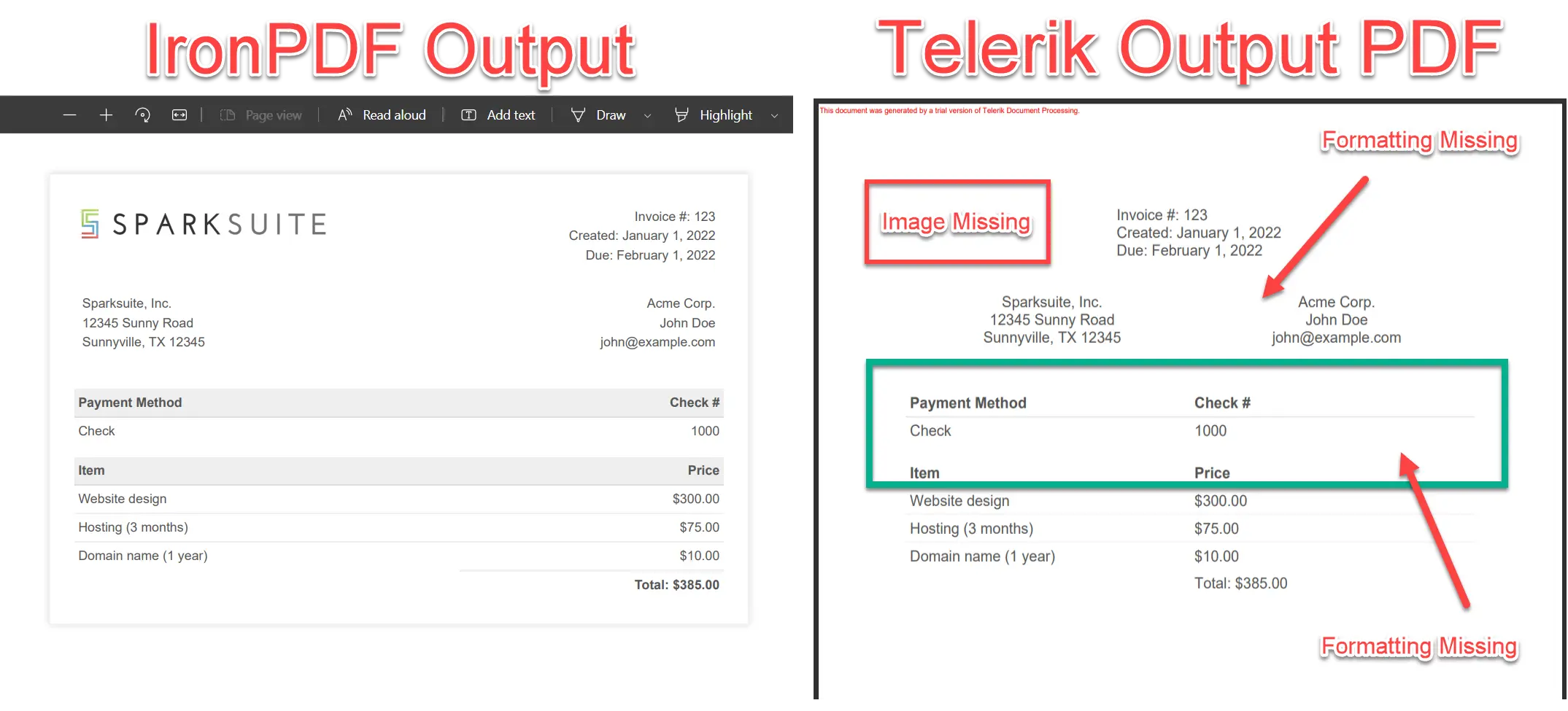
Output Comparison
Rendering Quality
In the above image, you can see the clear difference between the standard outputs of IronPDF and Telerik. Let's compare the output on the basis of features.
The rendering quality of Telerik is poor. The PDFs that it renders have poor formatting, failing to preserve the original styles of the document. On the other hand, IronPDF has outstanding rendering quality, retaining every aspect of the source document.
CSS and JavaScript Support
Telerik PdfProcessing is designed primarily for code-based PDF generation and doesn't natively support external CSS or JavaScript files for HTML conversion. Its focus is on programmatic document creation rather than HTML rendering.
Conversely, IronPDF has full support for internal and external CSS and JavaScript declarations. Processing of JavaScript can be toggled on or off as required with IronPDF.
Limitations of Telerik Document Processing
In summation, the following are some additional limitations of Telerik PdfProcessing for HTML-to-PDF workflows:
- Telerik PdfProcessing doesn't natively support external CSS or JavaScript files for HTML conversion.
- Limited HTML rendering capabilities compared to browser-based PDF generators.
- No built-in URL-to-PDF conversion functionality.
- Designed for programmatic PDF creation rather than HTML document conversion.
- HTML rendering quality may not match the source document's appearance.
Features of IronPDF
IronPDF's chief features are:
- IronPDF supports URL-to-PDF and HTML file-to-PDF conversion.
- IronPDF supports external files like images, CSS, and JS files.
- IronPDF automatically loads every file without using any external libraries.
- IronPDF has extensive documentation.
- IronPDF preserves the UI and gives perfect rendering quality.
There are many other features of IronPDF. You can visit the IronPDF Features Page for the bestinformation.
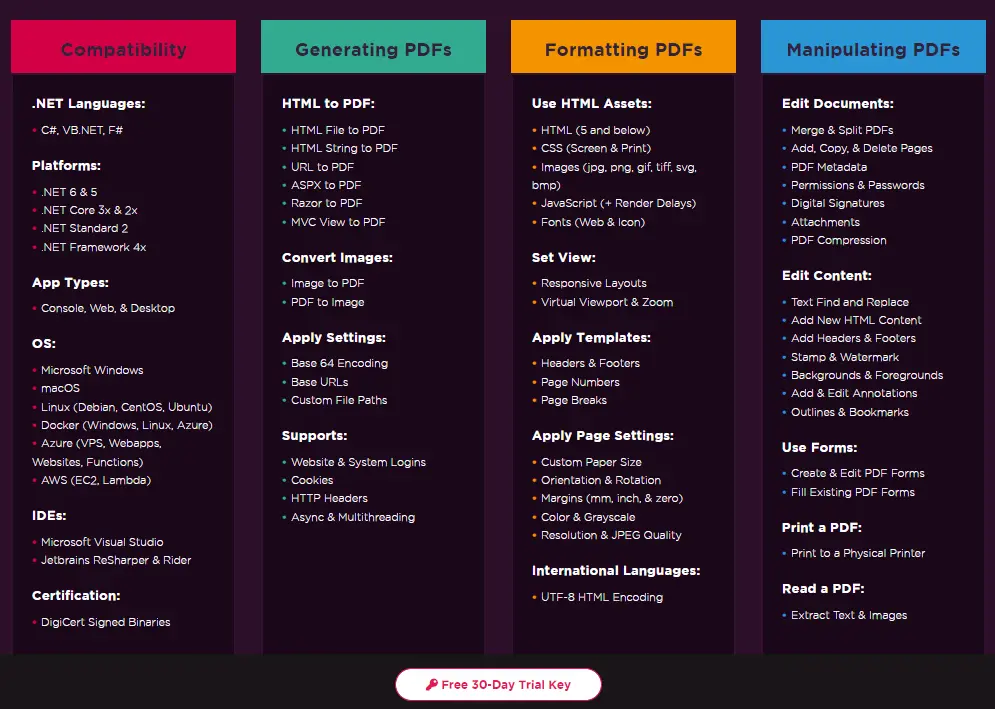
IronPDF Features
Conclusion
In this article, we compared IronPDF with Telerik PdfDocument Processing libraries and found that IronPDF is far better than the Telerik library for HTML to PDF conversion.
IronPDF is an excellent library for all PDF-related operations. You can create, edit, and modify PDF files in all the latest .NET and .NET Core frameworks. Visit the IronPDF Licensing Pagefor more information about the distribution and licensing of IronPDF product bundles.
Frequently Asked Questions
How can I convert HTML to PDF in C#?
You can use IronPDF's RenderHtmlAsPdf method to convert HTML strings into PDFs. You can also convert HTML files into PDFs using RenderHtmlFileAsPdf.
What are the benefits of using IronPDF over Telerik for PDF generation?
IronPDF offers superior rendering quality, supports external CSS and JavaScript files, and allows for URL-to-PDF conversion. It also retains the original document's styles and UI better than Telerik PdfProcessing.
Can I use IronPDF to handle external CSS and JavaScript files?
Yes, IronPDF supports the inclusion of external CSS and JavaScript files, which ensures accurate rendering of HTML documents.
What installation methods are available for IronPDF?
IronPDF can be installed using the NuGet Package Manager Console, the NuGet Visual Studio GUI, or by downloading the IronPDF DLL file for manual installation.
Why might Telerik PdfProcessing be limited in rendering quality?
Telerik PdfProcessing does not support external CSS, JavaScript, or URL-to-PDF conversion, leading to poor rendering quality and incomplete document features.
What main features does IronPDF offer?
IronPDF supports URL-to-PDF and HTML file-to-PDF conversion, handles external files like images, CSS, and JS, and provides excellent rendering quality. It also includes comprehensive documentation.
Is it possible to convert URLs to PDFs using IronPDF?
Yes, IronPDF allows conversion of URLs to PDFs, maintaining the original styling and content using its versatile rendering capabilities.
How do I install IronPDF using the Package Manager Console?
To install IronPDF via the Package Manager Console, use the command Install-Package IronPdf.
What challenges does Telerik PdfProcessing face in handling images within PDFs?
Telerik PdfProcessing struggles with rendering images in PDFs due to its lack of support for external CSS and JavaScript, which can affect the overall quality and completeness of the document.
How does IronPDF ensure better PDF document quality compared to Telerik?
IronPDF ensures better quality by supporting external CSS and JavaScript, providing comprehensive documentation, and offering robust rendering capabilities that preserve the original document's style and UI.


